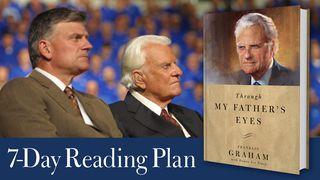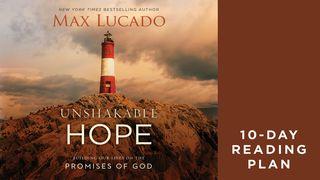The Bible with Nicky and Pippa Gumbel, Classic Version, 2017Sample

You Will Reap Far More Than You Sow
Walter Nishioka knew that the service was good at the Hawaiian hotel where he ate brunch on Wednesdays. But he found out just how good it was when he was offered something that was definitely not on the menu – one of the waiter’s own kidneys.
Mr Nishioka, aged seventy, was a local businessman. He was seriously ill with kidney disease and had been told by doctors that he needed a transplant urgently. He had almost given up hope of finding a matching organ until the waiter, Jose Rocasa, fifty-two, volunteered one of his own. Nishioka said, ‘I didn't have long to survive and the doctors said that it was unlikely that they could find a match in time. But with a good man here and a lot of help from above, now I am alive and well.’
In the twenty-two years that Mr Nishioka had frequented the hotel, Jose Rocasa had been his waiter, and recalled that he had always been kind and affable – and had tipped generously. ‘I just wanted to help him,’ he said. ‘For years, we have this friendship in which he comes to lunch and I do my best to make him very happy, and he is always good to me in return. So of course I say, “Don't worry – I can give you a kidney.”’
Mr Nishioka sowed generosity and he reaped generosity!
Today, we see that:
- You reap what you sow
- You reap later than you sow
- You reap more than you sow
Psalm 58:1-11
1. Sow justice
Over 800,000 people (mainly women and children) are trafficked for sex every year in this almost unbelievably evil trade. There are now 29.8 million people in modern day slavery. Almost every day we read of atrocities carried out by Daesh and evil regimes.
The psalmist speaks out against this kind of injustice: ‘Is this any way to run a country? Is there an honest politician in the house?’ (v.1, MSG).
He cries out against rulers who do not speak justly (v.1), whose hearts devise injustice and whose hands ‘mete out violence’ (v.2). They are ‘cauldrons of evil’, doing ‘deals with demons’ (v.2, MSG) and they speak out lies (v.3). They ignore the cries of those who desire justice – both humans and God himself – for they are like ‘a cobra that has stopped its ears, that will not heed the tune of the charmer, however skilful the enchanter may be’ (vv.4b–5).
Leadership is key in any society. A leader who sows injustice will reap terrible consequences. They are sowing poison: ‘Their venom is like the venom of a snake’ (v.4). They create an unstable society and will eventually be ‘swept away’ (v.9). When this happens there will be great relief all round. They reap what they sow. Likewise, ‘the righteous… are rewarded’ (v.11a). When we see this principle at work we say, ‘there is a God’ (v.11).
Often, the reaping will happen a lot later than the sowing. Even if we have to wait until the final judgment, this psalm reminds us that justice will take place. God’s judgment is a good thing. It stems from his love. God values each one of us so much that he cares how we treat one another. Ultimately, injustice will not triumph. Justice will prevail and the righteous will ‘be glad’ (v.10).
Lord, help me to do everything I can to sow justice in this world. Help me to fight against injustice wherever I see it.
John 6:1-24
2. Sow generously
There are, of course, so many lessons to be learned from events in the life of Jesus. One of these is the principle that those who sow generously will also reap generously.
Jesus looked up and saw a great crowd coming towards him. ‘He said to Philip, “Where can we buy bread to feed these people?” He said this to stretch Philip’s faith’ (vv.5–6a, MSG). Faith is like a muscle, it grows by stretching.
In fact, although Jesus asked the question ‘he already had in mind what he was going to do’ (v.6b). This shows that it is alright to ask questions to which you already know the answer. (In fact, when I was practising as a barrister I was taught only to ask questions to which I already knew the answer!)
‘Philip answered him, “Eight months’ wages would not buy enough bread for each one to have a bite!” Another of his disciples… spoke up, “Here is a boy with five small barley loaves and two small fish, but how far will they go among so many?”’ (vv.7–8).
This boy’s act of generosity will never be forgotten. Jesus is able to do a lot with a little. The boy gave generously all that he had. It was not very much – it was ‘a drop in the bucket for a crowd like this’ (v.8, MSG).
However, it multiplied in the hands of Jesus. At least 5,000 were fed and there was plenty left over. Jesus said, ‘Gather the pieces that are left over. Let nothing be wasted’ (v.12). If it needed a biblical basis, here is a biblical basis for not wasting food – it always seems a terrible waste if food is thrown away unnecessarily.
The world produces enough food to feed everyone. Yet 870 million people (1 in 8 of the world’s population) are suffering from chronic undernourishment. At the same time, around a third of the food produced in the world for human consumption every year – approximately 1.3 billion tonnes – gets lost or wasted. Individually and corporately we need to act urgently on Jesus’ instruction: ‘Let nothing be wasted’ (v.12).
What you give to Jesus, he multiplies. The apostle Paul wrote, ‘Remember this: Whoever sows sparingly will also reap sparingly, and whoever sows generously will also reap generously’ (2 Corinthians 9:6).
Make it your aim to be the most generous person you know. Be generous with your money, your possessions, your time and your love. You cannot out-give God. The more you give the more you will harvest and the more you will enjoy the favour of God on your life.
Straight after this amazing miracle of the feeding of the 5,000, the disciples find themselves in a storm (John 6:18). Jesus calls his disciples to move from a faith based on a very visible miracle that fulfilled their physical need to a faith that is a total trust in him and his words.
Miraculously, Jesus walks on the water towards them. They were ‘scared senseless’ (v.19, MSG). Jesus says to them, ‘It’s me. It’s all right. Don’t be afraid’ (v.20, MSG). Following Jesus is not always easy. There are storms and other challenges of life, but Jesus’ presence with us is transformational. No wonder the crowd went ‘in search of Jesus’ (v.24).
Thank you, Jesus, that what I give to you, you multiply. Lord, help me to be generous with everything – with money, possessions, hospitality and time.
Judges 9:1-57
3. Sow loyalty
I have noticed, over the years, how those who sow loyalty to their leaders reap a high degree of loyalty when they themselves come into positions of leadership. On the other hand, those who refuse to come under another’s leadership and who stir up trouble, invariably reap the same attitude of disloyalty if they themselves come into a position of leadership.
In this passage we see the disastrous consequences of the disloyalty of Abimelech to his father and to his brothers. Abimelech sowed violence. ‘He hired some reckless, riffraff soldiers... and killed his half brothers... seventy men!’ (vv.4–5, MSG). The youngest managed to hide – the only survivor.
Again, we see this biblical principle at work: we reap what we sow. Abimelech sowed disloyalty and violence. He reaped disloyalty and violence. Initially, he was in cahoots with the citizens of Shechem (v.2 and following). But three years later bad feeling arose between Abimelech and the citizens of Shechem, who had acted treacherously against Abimelech.
Abimelech reaped what he had sown. Shechem’s leaders ‘worked treacherously behind his back. Violence boomeranged: the murderous violence that killed the seventy brothers, the sons of Jerub-Baal, was now loose among Abimelech and Shechem’s leaders, who had supported the violence’ (vv.23–24, MSG).
Abimelech showed no loyalty to the people of Shechem. He used them when he needed them (v.2). However, he had no hesitation in wiping them out (vv.42–49).
Ultimately, they all reaped what they had sown, and Abimelech himself was ingloriously killed soon after (vv.53–54). The writer sums it all up: ‘God avenged the evil Abimelech had done to his father, murdering his seventy brothers. And God brought down on the heads of the men of Shechem all the evil that they had done’ (vv.56–57, MSG).
Lord, help us to be loyal to one another in the church, in the workplace, in our families and in our friendships. Help us as a community to sow truth and justice, generosity and loyalty.
Pippa Adds
Judges 9:1–57
How sad to see the destruction of Gideon’s family (Jerub-Baal). I think he needed to have read the Lee's The Marriage Book and The Parenting Book, and to have concentrated a bit more on those areas of his life. Family are important, and we have to invest time in them.
Scripture
About this Plan

Start your day with the Bible in One Year, a Bible reading app with commentary by Nicky and Pippa Gumbel. Nicky Gumbel is the Vicar of HTB in London and pioneer of Alpha. 'My favourite way to start the day.' - Bear Grylls, Adventurer
More
We would like to thank Nicky and Pippa Gumbel, HTB for providing this plan. For more information, please visit: https://www.bibleinoneyear.org/
Related Plans

The One Year® Chronological Bible

ICA - 365 Daily Kingdom Living

The Greatest Gift

C.S. Lewis And The Call To Create

Choosing Each Day: God or Self?

Discerning The Voice Of God

Through My Father's Eyes

Unshakable Hope: Building Our Lives On The Promises Of God

How to Practice Gratitude in the Midst of Waiting by Wycliffe Bible Translators
